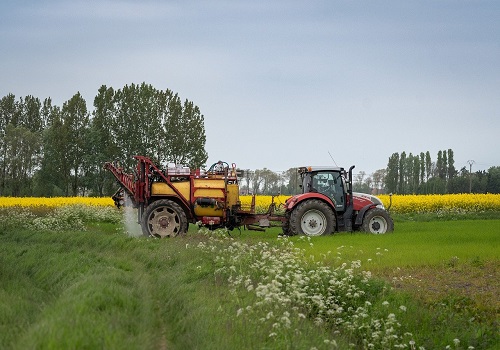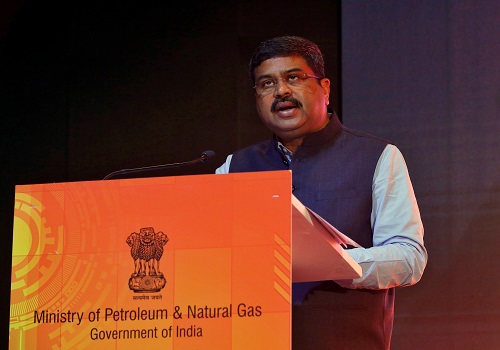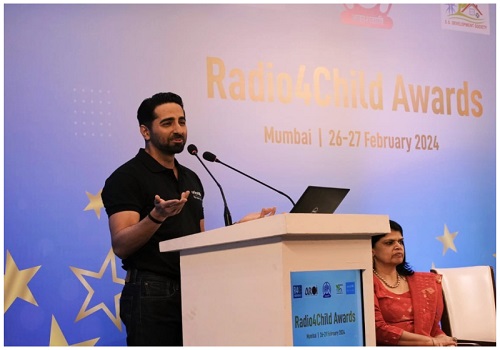With rising population and soaring temperature, industry invests in R&D practices in agriculture

Follow us Now on Telegram ! Get daily 10 - 12 important updates on Business, Finance and Investment. Join our Telegram Channel
The Agriculture landscape is evolving at a rapid rate to cater to the diversifying needs of farmers and consumers worldwide.
The driving force behind this evolution is Research and Development (R&D). It fosters innovation and is a crucial determinant of agricultural productivity, sustainability and therefore food prices and poverty. But with global population on the constant rise and rising temperatures making the farming sector more resource-hungry, the farming sector is in for a stiff challenge ahead and agriculture companies will have to harness their R&D prowess to make this sector more resilient through constant resource upgrades and production.
With India being the most populous country, there’s growing need for scientific solutions to develop crops that are not only resilient to aberrant weather events but also use less land, fertiliser, water and crop protection chemicals.
In response, companies like Honda India Power Products, an industry leader in agricultural equipment and power product manufacturing are investing in R&D practices to provide portable and cutting-edge farm mechanization solutions for every stage of farming.
Likewise, Crystal Crop Protection Limited, a leading Agrochemical company, are boosting India’s agriculture ecosystem with innovative R&D approaches.
Speaking on Crystal Crop’s mission, its Managing Director, Ankur Aggarwal said: “As an organisation, we take a ‘Farmers First’ approach. Our endeavour has always been to ensure that Indian farmers are not hamstrung by a lack of new technology. As such, our R&D efforts are overseen by a team of over 40 scientists specialising in diverse aspects of agriscience and we strive to develop solutions that are not only effective in delivering high-yielding products but also affordable to smallholder farmers, ultimately enhancing their income and improving farming practices.”
While precision agriculture leverages advanced tech like drones, sensors, and satellites to optimize farming practices, specialized farming techniques like Vertical farming and System of Rice Intensification (SRI) are also used to address specific challenges in agriculture. Such interventions are particularly crucial in regions grappling with water or land scarcity and where there is larger dependency on traditional farming methods due to lack of resources.
Nestled in the Western ghats region, several villages in the Velhe taluka in Maharashtra have been engaged in intensive paddy cultivation for years. However, despite receiving heavy rainfall, the region is particularly susceptible to water scarcity owing to its topography and low ground water retention, the impact of climate change and the lack of non-natural sources of water for irrigation.
Recognizing the need for transformative solutions in the region, Raintree Foundation, a not-for-profit organisation, has stepped in to address these pressing challenges and raise awareness amongst the local communities about the sustainable farming solutions such as the SRI technique.
Namita Dandekar, COO, Raintree Foundation said: “In areas such as Velhe, where water scarcity and traditional farming methods present formidable challenges, the adoption of transformative practices like the System of Rice Intensification (SRI) is crucial. The Raintree Foundation is committed to addressing these challenges by introducing innovative solutions and raising awareness among local communities about the significance of sustainable farming. Our initiatives have not only positively impacted the livelihoods of local farmers but have also contributed to the overall resilience of the community.”
“The implementation of SRI in Velhe has resulted in a remarkable 36 per cent increase per guntha in rice production, highlighting the tangible benefits of these transformative farming techniques. This method reduces water use by 30 per cent in rice fields, contributes to environmental well-being by minimizing the use of synthetic inputs, decreasing pollution, and safeguarding biodiversity,” Dandekar added.










Tag News

Founders of 28 Indian new-age startups took home Rs 284 crore as salary in FY24





 320-x-100_uti_gold.jpg" alt="Advertisement">
320-x-100_uti_gold.jpg" alt="Advertisement">








